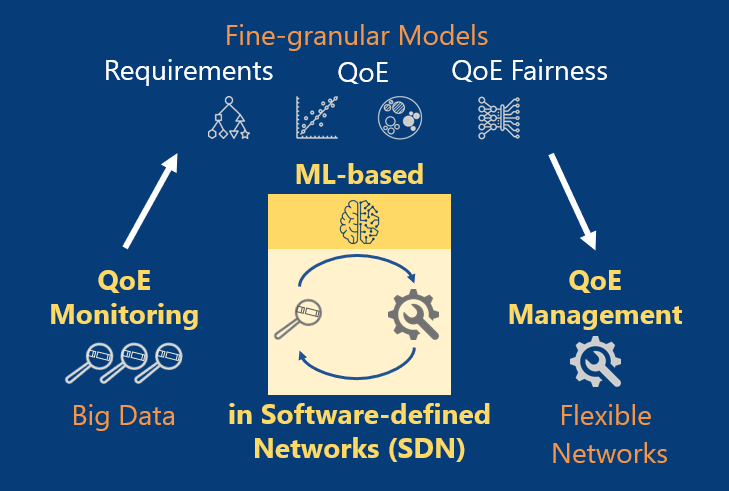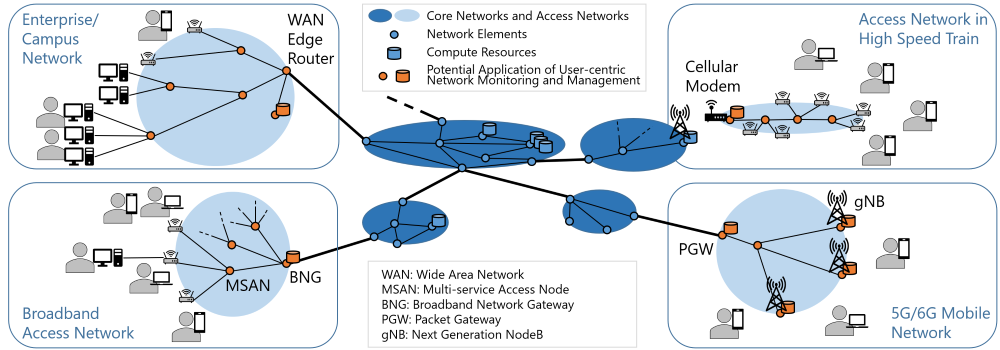ML-based Monitoring and Management of QoE for User-centric Communication Networks (UserNet, now at University of Augsburg)

| Partner | Deutsche Forschungsgemeinschaft (DFG) Emmy Noether Program (ENP) |
| Funded period | Since October 2022 |
| Head | |
| Researchers | Prof. Dr. Michael Seufert We have an open position! --> more information here |

Project Description
In communication networks, network operators face increasing challenges when monitoring and managing their networks. These are driven by the growing number of users, devices, applications, and their diverse requirements, as well as the consequently required increasing complexity of networks. This holds especially for networks close to end users, so called eyeball networks, in which the traffic of many end users is aggregated, see figure below. Here, individual packet streams matter and have to be considered during management, as end users can directly perceive the network state through the consumed Internet applications. To make these networks, as well as their operation and management, truly user-centric, network operators have to put emphasis on the requirements and desires of end users, in particular, with respect to network performance and Quality of Experience (QoE).
In order to allow QoE monitoring for arbitrary Internet applications, the interplays between QoE and user interactions is investigated and modelled based on measurements and subjective studies. In addition, ML methods are adapted to the domain in order to apply them to encrypted network traffic. This allows to quantify the QoE by monitoring interactions and the resulting changes in the encrypted application traffic. Based on this, a data-driven improvement of QoE and QoE fairness is enabled by using reinforcement learning to find optimal network configurations by interacting with the dynamic network environment. By means of powerful, software-defined networking (SDN) technologies like P4, together with available computing resources in the network, such fine-granular models can now be implemented in the network for the first time, such that network management becomes more dynamic. Thus, the implementation of the required ML-based algorithms and components and their integration into network operation is researched.
Check out our press release (in German): Press Release UserNet



